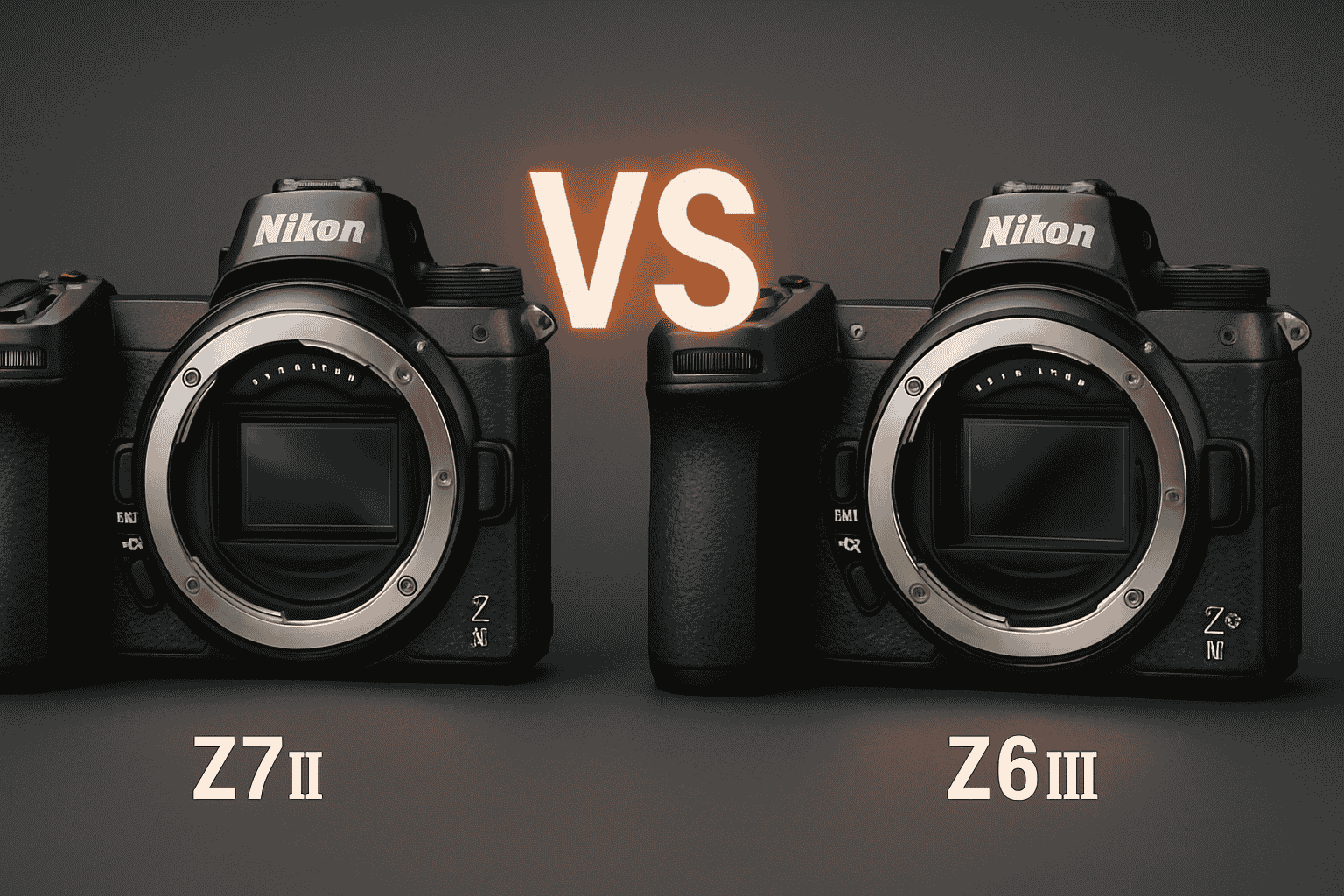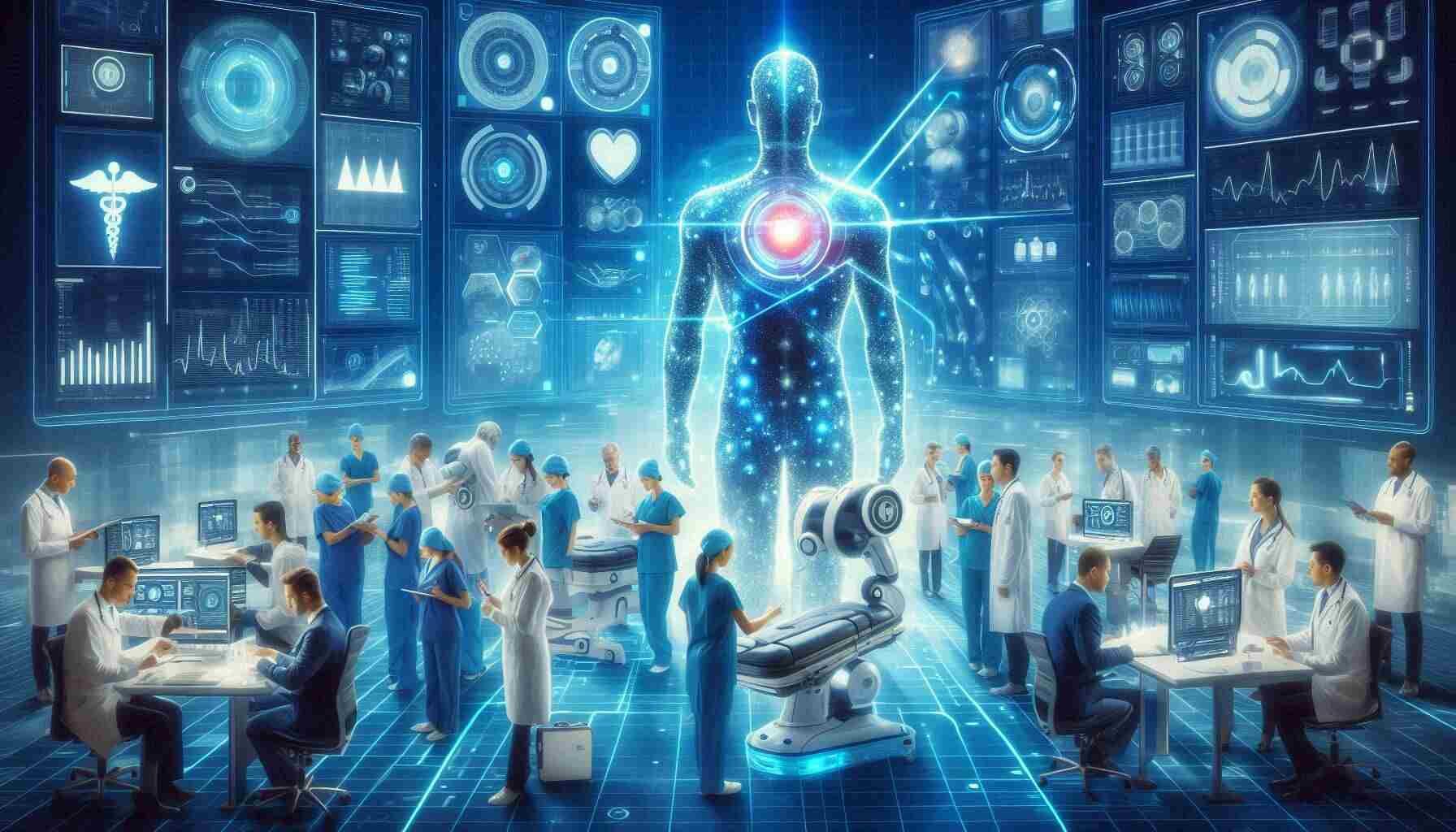
Artificial Intelligence (AI) is revolutionizing the healthcare landscape, offering innovative solutions that enhance efficiency, accuracy, and patient outcomes. In this blog post, TechRipple will explore the 10 benefits of artificial intelligence in healthcare. By understanding these benefits, healthcare providers can leverage AI to improve patient care and streamline operations.
1. Enhanced Diagnostic Accuracy
One of the most significant 10 benefits of artificial intelligence in healthcare is its ability to enhance diagnostic accuracy.
- AI Algorithms: AI algorithms can analyze medical images, such as X-rays, MRIs, and CT scans, more quickly and accurately than human radiologists.
- Case Study: A study published in Nature found that an AI system outperformed radiologists in detecting breast cancer in mammograms, showcasing a significant advancement in diagnostic accuracy.
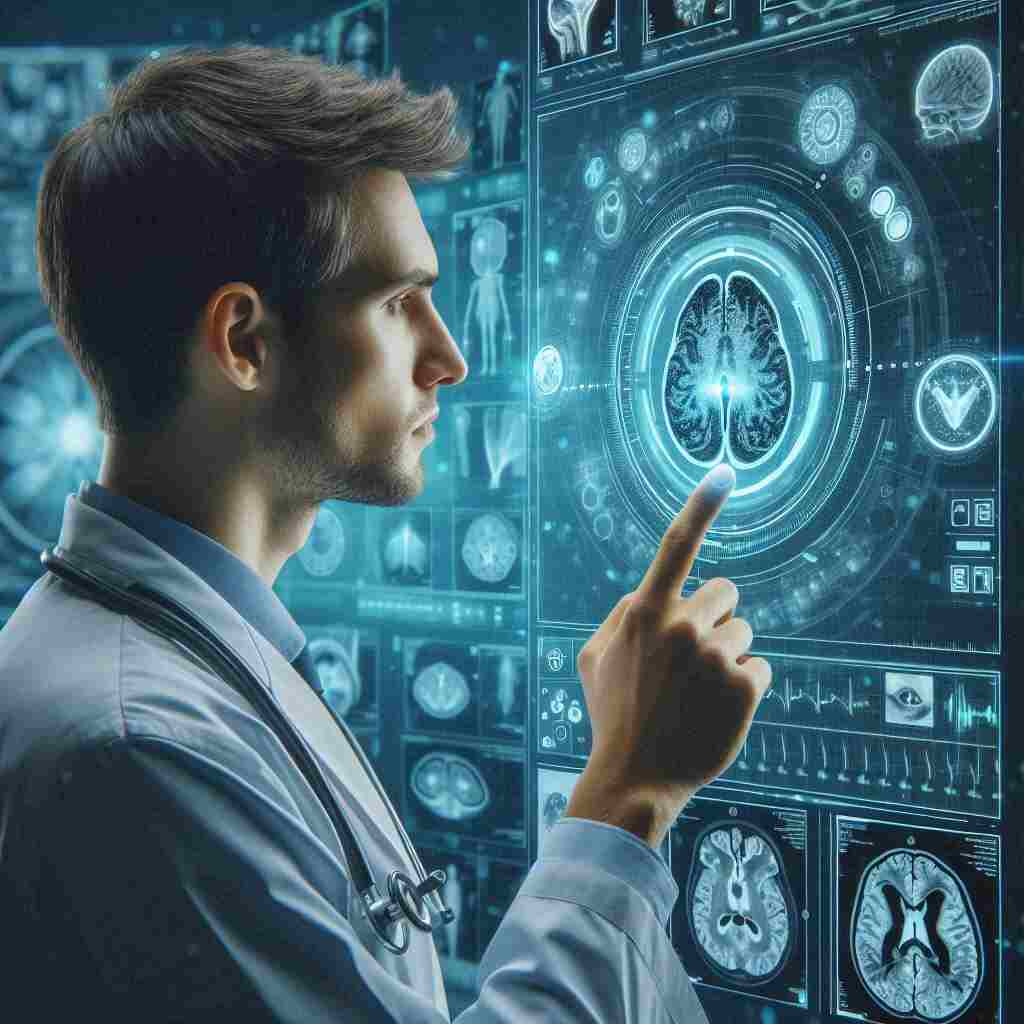
Real-World Application
Hospitals using AI-powered diagnostic tools have reported improved patient outcomes and reduced costs associated with misdiagnoses. For instance, a hospital network implementing AI tools for radiology saw:
- A 20% reduction in false positives.
- A 15% increase in early cancer detection rates.
The Importance of Early Detection
Early detection is crucial in improving patient prognosis for various conditions, particularly cancers. The ability of AI to identify abnormalities at earlier stages allows for timely interventions, which can significantly increase survival rates.
For example, AI systems have been developed to analyze dermatological images to detect skin cancer at its earliest stages, providing a non-invasive method for screening that can be integrated into routine check-ups.
2. Personalized Medicine
Another crucial benefit within the 10 benefits of artificial intelligence in healthcare is personalized medicine.
- Tailored Treatments: AI enables healthcare providers to tailor treatments based on individual patient data, including genetic information and lifestyle factors.
- Example: Companies like Tempus are using AI to analyze clinical and molecular data to help oncologists create personalized treatment plans for cancer patients.

The Role of Genomics
AI systems can analyze genetic markers to predict how patients will respond to specific medications or therapies, allowing for more effective treatment strategies.
- Pharmacogenomics: This field combines pharmacology and genomics to investigate how a person’s genetic composition influences their reaction to medications. AI can process vast amounts of genomic data to identify patterns that inform drug prescriptions.
Case Study: Cancer Treatment
For instance, a patient diagnosed with lung cancer may have their tumor’s genetic profile analyzed using AI algorithms. Based on this analysis, oncologists can select targeted therapies that are more likely to be effective for that specific genetic mutation.
This approach not only improves treatment efficacy but also minimizes side effects by avoiding ineffective therapies that may harm the patient without providing any benefit.
3. Predictive Analytics for Patient Monitoring
Predictive analytics is one of the most powerful tools in AI’s arsenal, making it one of the top 10 benefits of artificial intelligence in healthcare.
- Real-Time Data Analysis: By analyzing real-time data from wearable devices and electronic health records (EHRs), AI can identify patterns indicating potential health issues before they become critical.
- Case Study: A study conducted by the University of California demonstrated that AI-driven predictive analytics could reduce hospital readmissions by up to 30%.
Wearable Technology
Devices such as smartwatches can continuously monitor vital signs and send alerts directly to healthcare providers if any anomalies are detected.
- Examples of Wearables: Devices like Fitbit or Apple Watch can track heart rate, activity levels, and even sleep patterns. These metrics provide valuable insights into a patient’s overall health status.
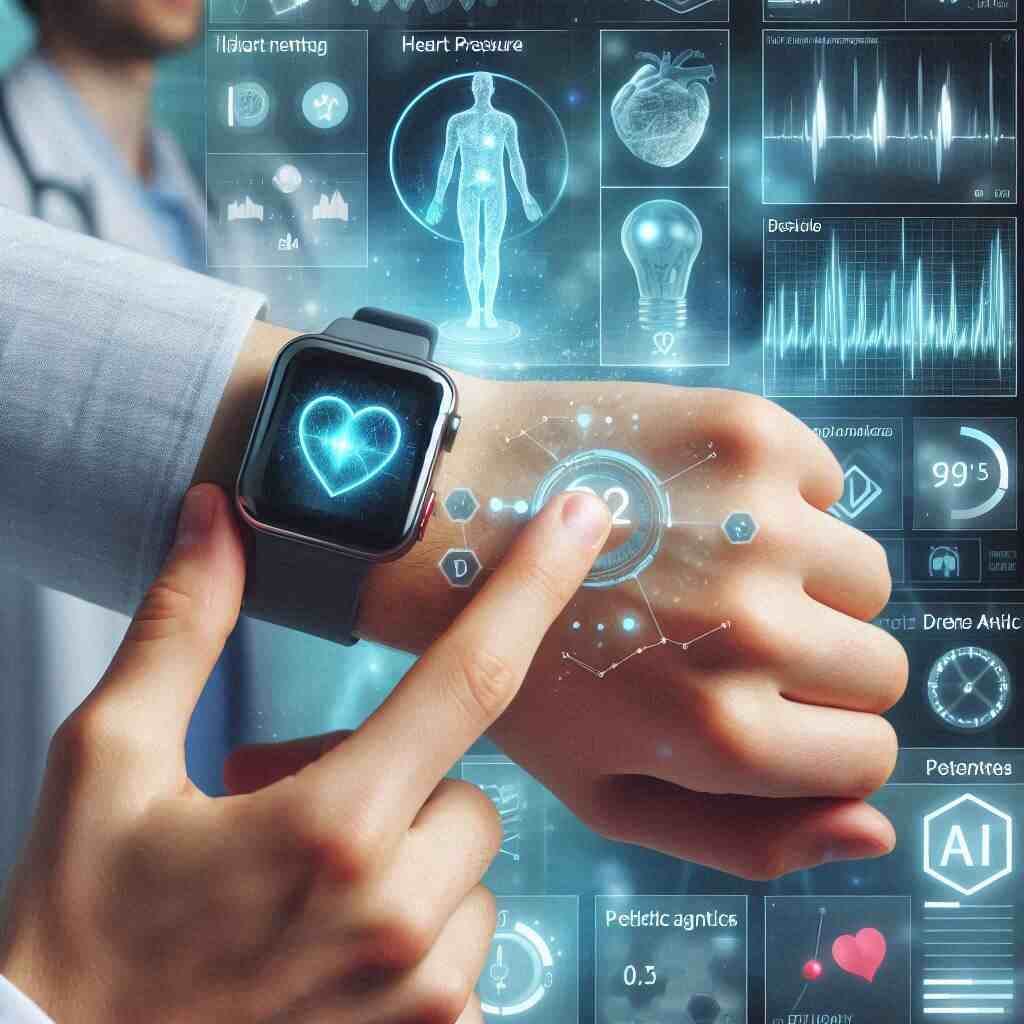
Benefits of Early Intervention
The ability to intervene early based on predictive analytics can lead to significant improvements in chronic disease management. For example:
- Patients with diabetes can receive alerts when their blood sugar levels are trending dangerously low or high.
- Patients with heart conditions can be monitored for irregular heartbeats or other concerning symptoms.
This proactive approach allows healthcare providers to intervene before a patient experiences a crisis, potentially preventing hospitalizations and improving quality of life.
4. Streamlined Administrative Processes
Administrative responsibilities can be a considerable strain for healthcare providers. One key benefit among the 10 benefits of artificial intelligence in healthcare is its ability to automate various administrative processes.
- Reducing Burden: By automating tasks like appointment scheduling and billing, AI allows staff to focus more on patient care.
- Example: Chatbots can handle patient inquiries about appointments or billing issues, freeing up staff time for more critical tasks.
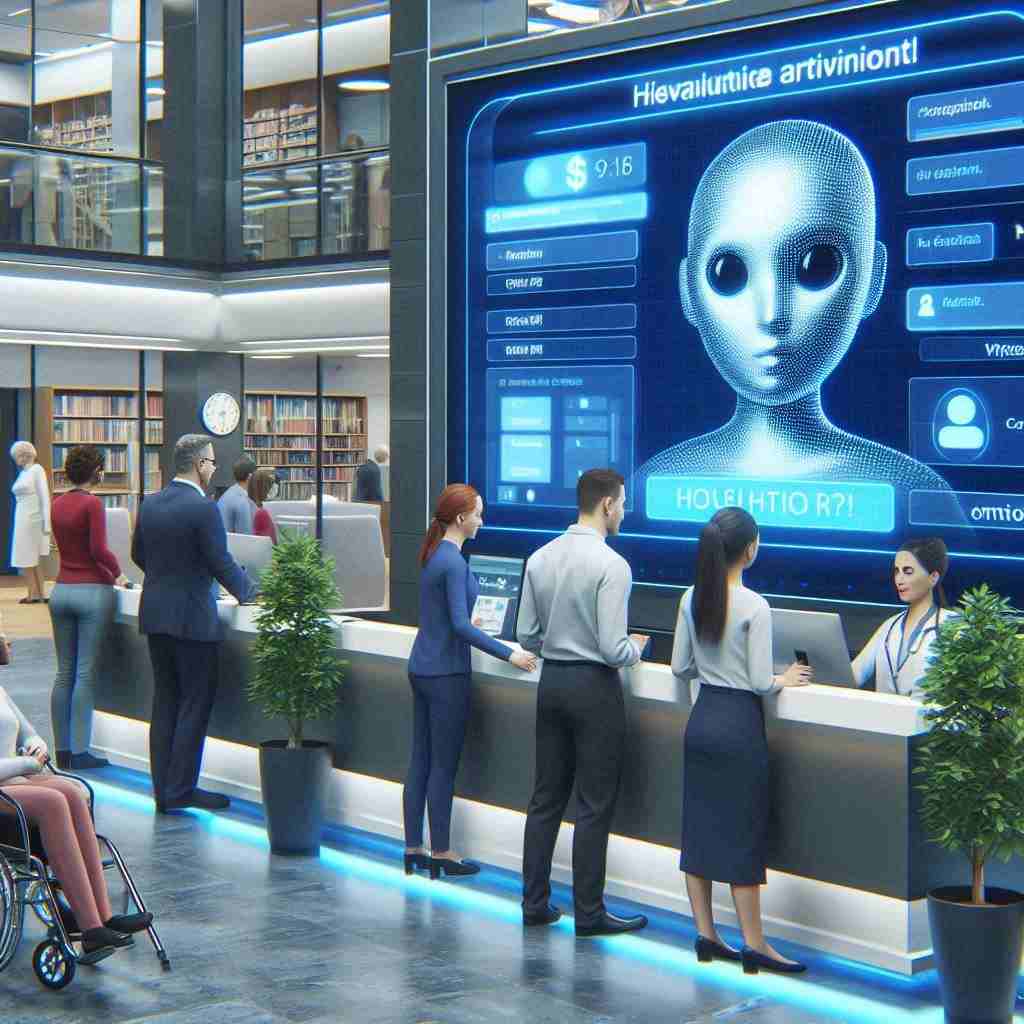
Financial Impact
A report from McKinsey estimates that automating administrative tasks could save the U.S. healthcare system up to $265 billion annually.
- Efficiency Gains: Automated systems reduce human error associated with manual data entry and streamline workflows across departments.
Case Study: Appointment Scheduling
AI-driven scheduling systems can optimize appointment bookings based on provider availability and patient needs:
- Patients receive reminders about upcoming appointments.
- No-shows are reduced through automated follow-ups.
This not only improves patient happiness but also ensures more efficient use of healthcare resources.
5. Drug Discovery and Development
AI is revolutionizing drug discovery by significantly reducing the time and cost involved—another major benefit among the 10 benefits of artificial intelligence in healthcare.
- Accelerated Processes: Machine learning algorithms can analyze vast datasets to identify potential drug candidates quickly.
- Example: Atomwise uses AI to screen millions of compounds for potential drug candidates within days—a process that traditionally takes years.
Collaborative Efforts
Pharmaceutical companies are increasingly collaborating with AI firms to enhance their drug discovery processes:
- These partnerships leverage advanced algorithms to analyze biological data at an unprecedented scale.
Case Study: COVID-19 Vaccine Development

During the COVID-19 epidemic, AI was vital in expediting vaccine research:
- Researchers used AI models to predict how different vaccine candidates would interact with the virus.
This rapid analysis allowed scientists to focus on the most promising candidates faster than traditional methods would permit.
6. Improved Patient Engagement
AI technologies facilitate better patient engagement through personalized communication—one more notable benefit within the 10 benefits of artificial intelligence in healthcare.
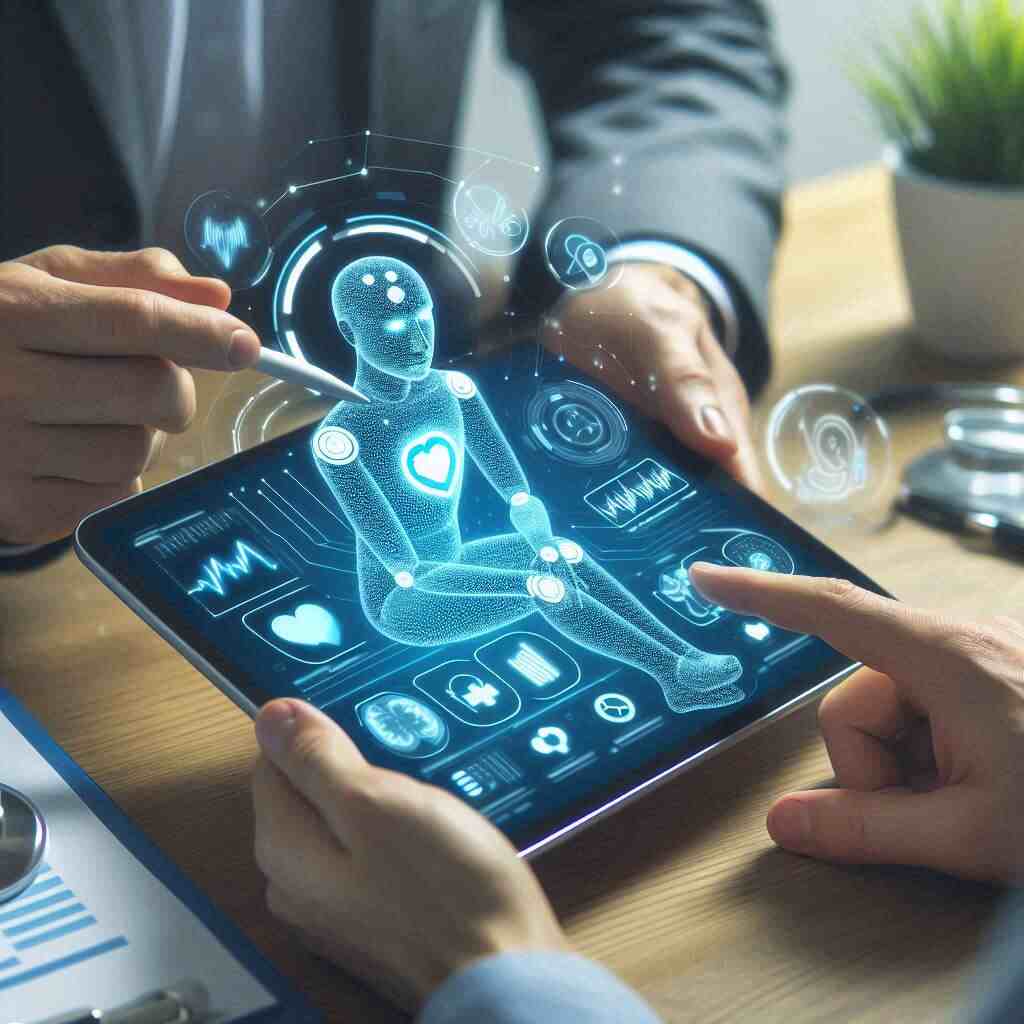
- Instant Responses: Chatbots and virtual health assistants provide patients with instant responses to their queries.
- Example: Companies like Buoy Health use AI-driven chatbots to guide patients through their symptoms and recommend appropriate care options based on their responses.
Educational Resources
AI can also provide tailored educational resources for patients based on their specific conditions or treatments:
- Patients receive information relevant to their health concerns.
This helps them engage actively in their care plans and make informed decisions about their health management.
Enhancing Adherence
Improved engagement through personalized communication leads to better adherence rates among patients:
- Automated reminders about medication schedules or follow-up appointments ensure patients stay on track with their treatment plans.
This proactive approach fosters a sense of accountability among patients regarding their health management.
Check out our detailed Gemini vs ChatGPT 4o Comparison to explore the features, performance, and differences between these two AI models.
7. Remote Patient Monitoring
The rise of telemedicine has been bolstered by AI-driven remote patient monitoring tools—another significant benefit among the 10 benefits of artificial intelligence in healthcare.
- Chronic Condition Management: These technologies enable healthcare providers to track patients’ health metrics from afar.
- Case Study: A study published in The Lancet found that remote monitoring reduced hospitalizations among heart failure patients by nearly 40%.
Telehealth Integration
Integrating remote monitoring tools with telehealth services enhances one dimension among the 10 benefits of artificial intelligence in healthcare, allowing real-time data sharing during virtual visits:
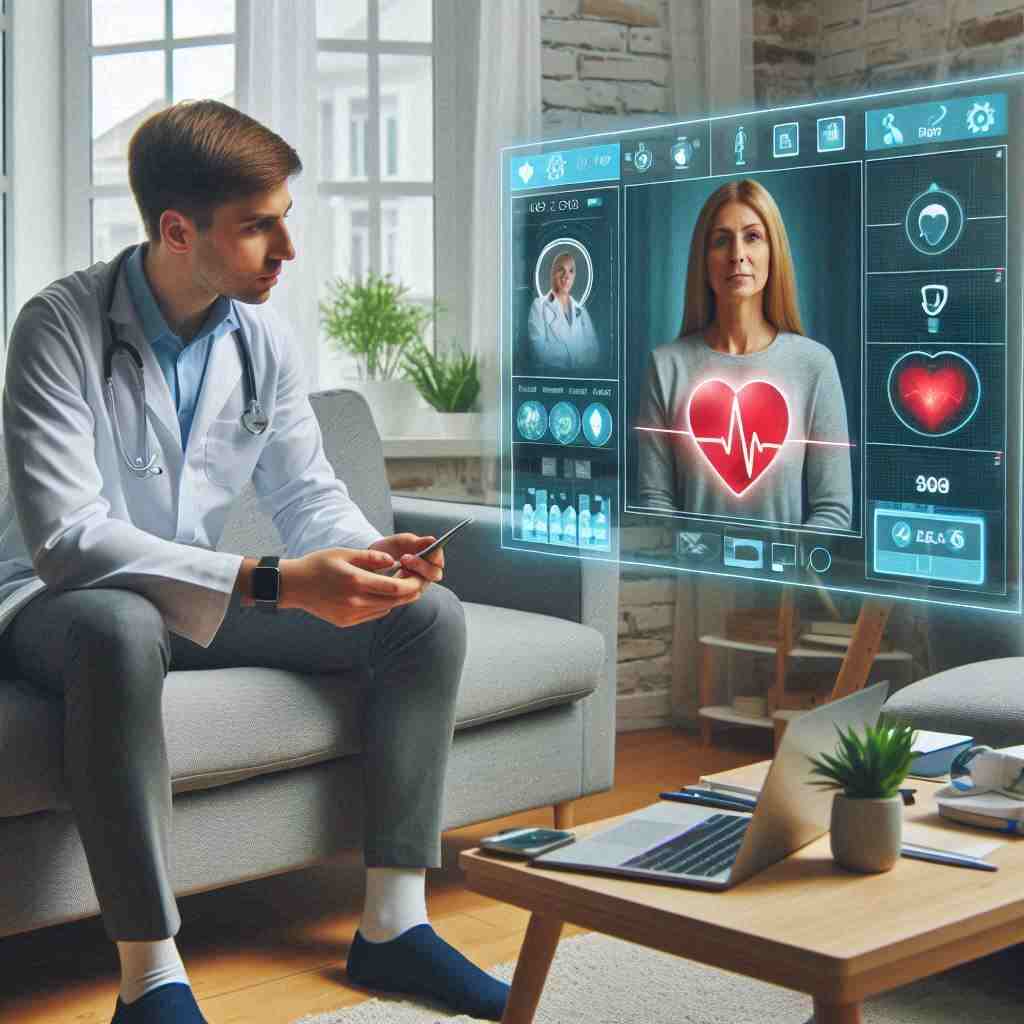
- Patients consult with their doctors remotely while sharing health metrics collected from wearables.
This integration provides comprehensive insights into a patient’s condition during virtual consultations, allowing doctors to make informed decisions quickly.
8. Enhanced Research Capabilities
AI’s ability to analyze large datasets quickly makes it an invaluable tool for medical research—yet another benefit included in the 10 benefits of artificial intelligence in healthcare.
- Identifying Trends: Researchers can leverage AI algorithms to identify trends, correlations, and insights that may not be apparent through traditional analysis methods.
- Example: IBM Watson has been used in oncology research to analyze clinical trial data rapidly and identify suitable candidates for trials based on genetic profiles.

Collaborative Research Initiatives
Collaborative research initiatives utilizing AI technologies bring together institutions worldwide:
- Sharing datasets allows broader analyses that drive innovation forward at an accelerated pace.
This collaborative approach enhances knowledge sharing among researchers and leads to faster advancements in medical science.
9. Operational Efficiency
AI enhances operational efficiency within healthcare organizations by optimizing workflows—another key benefit among the 10 benefits of artificial intelligence in healthcare.
- Resource Allocation: Predictive analytics can forecast patient admissions based on historical data trends.
- Example: Hospitals can manage staffing levels more effectively during peak times or emergencies, resulting in better resource utilization.
Supply Chain Management
AI plays a crucial role in supply chain management within hospitals:
- Predicting inventory needs based on historical usage patterns combined with real-time data analysis ensures necessary supplies are available when needed while reducing waste due excess inventory levels.
This optimization helps hospitals operate more efficiently while controlling costs associated with inventory management.
10. Support for Clinical Decision-Making
Finally, AI serves as a valuable support tool for clinicians by providing evidence-based recommendations during patient care decisions—one more essential benefit within the 10 benefits of artificial intelligence in healthcare.
- Evidence-Based Recommendations: Systems like IBM Watson analyze vast amounts of clinical data to offer insights that help doctors make informed choices regarding treatment options.

Personalized Insights
These systems consider individual patient characteristics such as allergies or comorbidities:
- This ensures recommendations are tailored specifically for each case.
By integrating clinical decision support systems (CDSS) into electronic health records (EHRs), physicians have real-time access during consultations so they have all relevant information at their fingertips when making critical decisions about patient care paths moving forward!
Conclusion
The 10 benefits of artificial intelligence in healthcare are reshaping medical practice by enhancing diagnostic accuracy; personalizing treatment plans; streamlining administrative processes; improving patient engagement; facilitating remote monitoring; accelerating drug discovery; enhancing research capabilities; optimizing operational efficiency; supporting clinical decision-making; ultimately leading toward better overall outcomes across diverse populations served globally!
As technology continues evolving rapidly alongside increasing demands placed upon our health systems worldwide due to rising populations coupled with rising chronic disease burdens, it becomes imperative that we embrace these innovations fully! By doing so together, we ensure our ability to meet modern medicine’s challenges while delivering high-quality care consistently each day!

